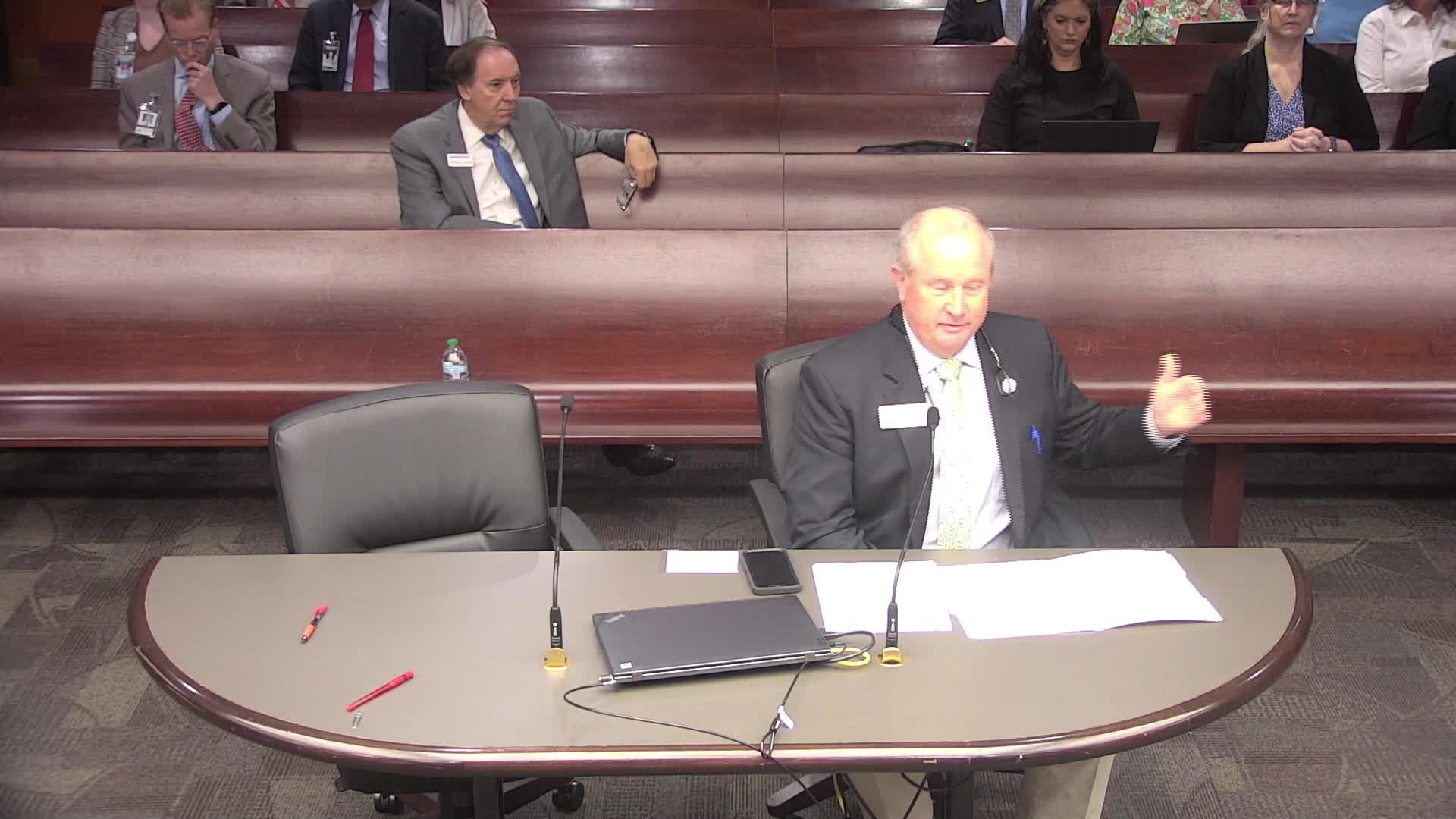Committee raises capital-outlay cap and requires accessibility standards for new elementary school playgrounds
Get AI-powered insights, summaries, and transcripts
Subscribe
Summary
The Senate Education and Youth Committee approved a committee substitute to House Bill 371 that increases the state’s capital outlay authorization to $375 million and requires inclusive accessibility standards for playgrounds at elementary schools built after July 1, 2027.
Representative Corbett presented the committee substitute to House Bill 371, saying the bill has two primary components: increasing the state's capital outlay authorization and setting minimum accessibility standards for playgrounds at newly constructed elementary schools.
Corbett told the committee the capital outlay program provides state funds to local school systems for construction, additions and renovations and that the bill would raise the program’s maximum authorization from $300,000,000 to $375,000,000 to account for added pre-K FTE in the formula and higher construction costs since the cap was last adjusted in 2007.
On playgrounds, the committee substitute (sponsored with an amendment from Pro Tem Kennedy) would require that any elementary school built after July 1, 2027 that includes a playground meet specified inclusive-accessibility standards. Corbett described those elements as a sidewalk or pathway from the school, communication boards (including ASL/print panels), roller slides, musical play equipment, adaptive swings, wheelchair-accessible raised structures, sensory panels, and surfacing such as rubber or turf that allow mobility-impaired children to access play areas.
Why it matters
Supporters said current ADA compliance often does not equate to true accessibility and that inclusive design lets children of varying abilities play together. Testimony from Hope for Hall and local advocates described families who have had no opportunity for children with disabilities to participate fully in recess and urged modern, durable surfacing and design.
Cost and retrofit questions
Committee members asked about costs. Corbett and senators said the primary incremental cost is surfacing (rubberized surfaces vs. mulch), which can be more expensive initially but may offer longer-term maintenance savings. The substitute includes a minimum playground size (committee discussion referenced a 10,000-square-foot baseline with 80% required as play area) and requires accessible route connections and a set of inclusive elements; it does not mandate a particular manufacturer or exact design.
Committee action
Senator Bearden moved and Senator Hatchett seconded to pass the substitute (LC 492329S) for House Bill 371. The committee approved the substitute by hand/voice vote and advanced the bill. The transcript records the committee’s unanimous approval by raised hands; no roll-call tally of individual votes was included.
Next steps
The substitute was advanced in committee and will proceed through the Senate process. The accessibility requirements in the substitute apply only to newly constructed elementary schools after July 1, 2027; retrofitting existing playgrounds was discussed as a potential future consideration but not included in the substitute.
